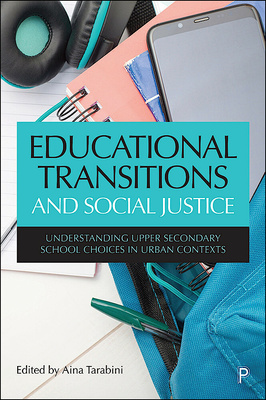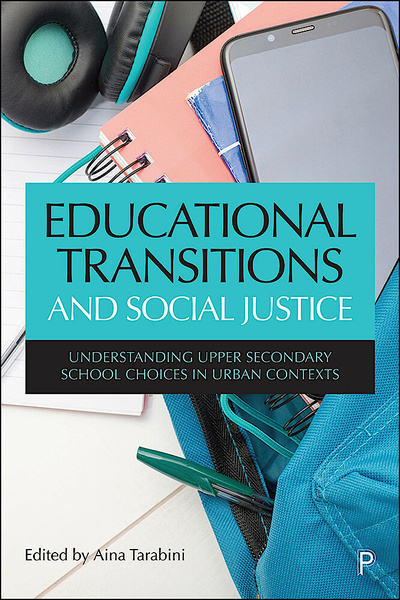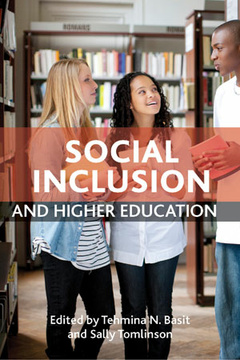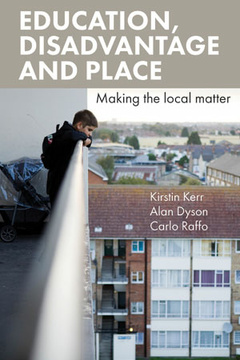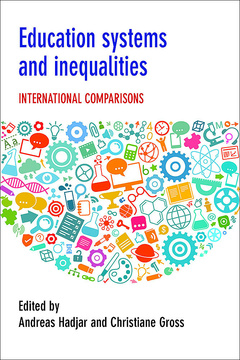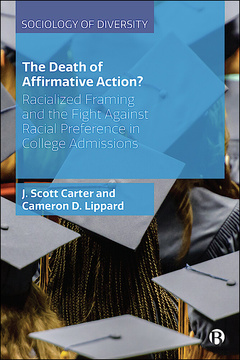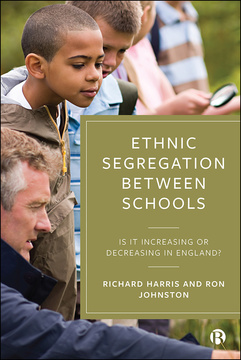Educational Transitions and Social Justice
Understanding Upper Secondary School Choices in Urban Contexts
Edited by Aina Tarabini
Published
Sep 22, 2022Page count
240 pagesISBN
978-1447363422Dimensions
234 x 156 mmImprint
Policy PressPublished
Sep 22, 2022Page count
240 pagesISBN
978-1447363439Dimensions
234 x 156 mmImprint
Policy PressPublished
Sep 22, 2022Page count
240 pagesISBN
978-1447363439Dimensions
234 x 156 mmImprint
Policy PressTransitions to upper secondary education are crucial to understanding social inequalities. In most European countries, it is at this moment when students are separated into different tracks and faced with a ‘real choice’ in relation to their educational trajectory.
Based on a qualitative driven approach with multiple research techniques, including documentary analysis, questionnaires and over 100 interviews with policymakers, teachers and young people in Barcelona and Madrid, this book offers a holistic account of upper secondary educational transitions in urban contexts. Contributors explore the political, institutional and subjective dimensions of these transitions and the multiple mechanisms of inequality that traverse them.
Providing vital insights for policy and practice that are internationally relevant, this book will guarantee greater equity and social justice for young people regarding their educational trajectories and opportunities.
"This book is a valuable resource for researchers and educators who want to understand the complex injustices shaping young people's educational transitions through upper secondary." Louise Archer, University College London
“Young people leaving school face an uncertain future and difficult choices. This careful and insightful mixed method study shows how such uncertainties work to highlight and intensify social inequalities. It speaks directly to policy and practice.” Stephen J Ball, University College London
“This book offers an excellent discussion of the intricacies of negotiating access and social justice in and through educational transitions. A remarkable exercise in research providing insight to today’s pressing issues.” Marcelo Parreira do Amaral, University of Münster
Aina Tarabini is Associate Professor in Sociology at Autonomous University of Barcelona. Her research analyses the (re)production of social inequalities in the daily life of education systems, schools and students, aiming to connect the subjective, institutional and systemic dimensions of inequality.
Introduction
1. Theoretical and methodological approaches to educational choices and transitions ~ Aina Tarabini
Part I: The framing and enactment of upper secondary educational transitions
2. The political construction of upper secondary transitions: comparing problematisations and solutions in two urban contexts ~ Judith Jacovkis, Miriam Prieto, Javier Rujas
3. Upper secondary transitions and urban educational spaces: public representations of youth, choices and (im)mobilities ~ Aina Tarabini, Judith Jacovkis, Alejandro Montes
4. In the name of vocations: teachers’ discursive legitimations of upper secondary educational choices ~ Aina Tarabini, Javier Rujas, Sara Gil
5. Does school shape upper secondary educational transitions? Exploring the relationship between students’ trajectories and educational choices ~ Alba Castejón, Alejandro Montes, Martí Manzano
Part II: The experience of upper secondary educational transitions
6. Working-class fractions and practical rationalities in the election of upper secondary education ~ Alejandro Montes, Javier Rujas, Judith Jacovkis
7. Understanding migrant students’ transitions to upper secondary education: devalued capitals and nonstandard timeframes ~ Martí Manzano, Aina Tarabini
8. Choosing against gender: making sense of girls’ and boys’ upper secondary vocational education choices ~ Marta Curran, Aina Tarabini
9. Reconstructing learner identity in upper secondary vocational education: from disaffection to recognition ~ Aina Tarabini, Judith Jacovkis, Marta Curran
10. Hermeneutical injustice in upper secondary educational transitions ~ Alberto Sánchez-Rojo, Miriam Prieto
Conclusion
11. Towards a comprehensive understanding of educational choices and transitions ~ Aina Tarabini







